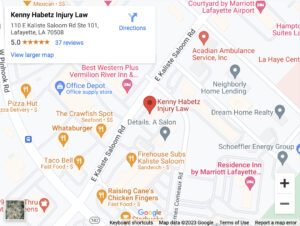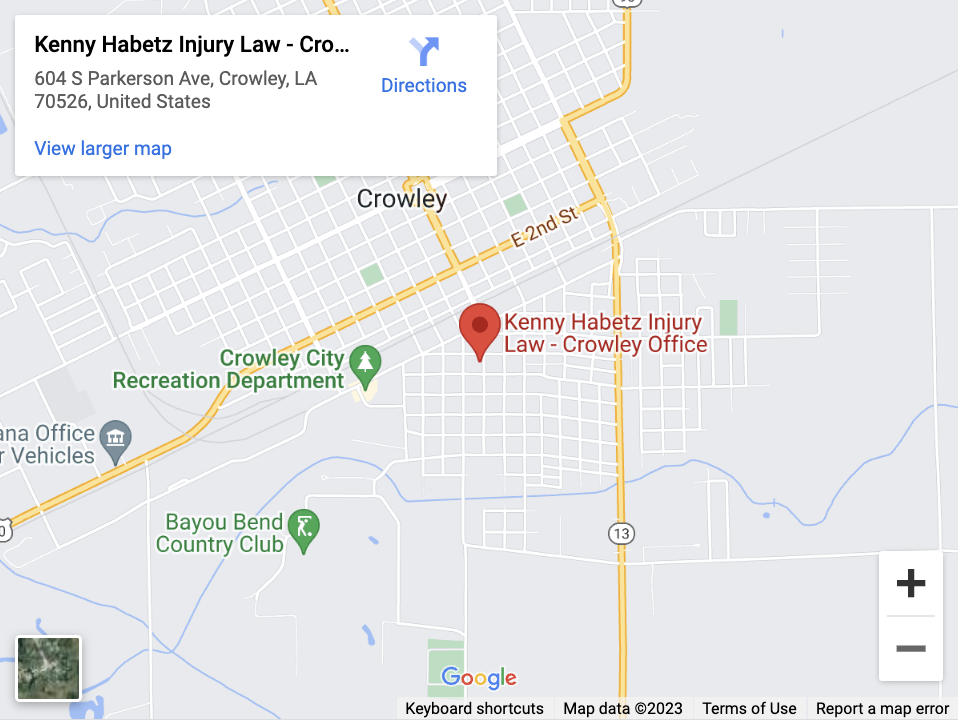
An intentional tort occurs when someone acts intentionally and their actions cause harm to another person, giving rise to a potential civil lawsuit. The tortfeasor may not have intended to harm the other person, but they did act intentionally. In addition to civil liability, the tortfeasor may also face criminal liability.
An experienced Lafayette personal injury attorney can help you pursue full compensation for your injuries and losses resulting from the intentional wrongdoing of an at-fault party.
What Are the Elements of an Intentional Tort Case?
Tort claims involving negligence, such as car accidents or medical malpractice, are more well-known than intentional torts. A negligence claim arises when someone acts carelessly or recklessly, harming someone else. In contrast, an intentional tort claim arises when someone acts purposefully, and another person is hurt.
The elements of a tort claim include:
- The defendant acted knowingly, willingly, and purposefully to harm another person.
- The victim did not consent to the conduct.
- The defendant’s actions hurt the plaintiff.
- The defendant’s conduct harmed the plaintiff.
The plaintiff must prove these elements by a preponderance of the evidence.
Types of Intentional Torts in Louisiana
Many different types of actions can lead to an intentional torts case. The following are examples of intentional torts in Louisiana.
Battery
Battery is the intentional use of force or violence against the person of another, resulting in offensive contact or personal harm.
Assault
Assault is an intentional act that puts another person in fear of an immediate attack or physical harm. The act need not result in harm so long as it results in the fear of harm.
False Imprisonment
False imprisonment is the intentional confinement or retention of another person without their consent and without legal authority to do so.
Trespass to Land
A trespass to land occurs when someone enters another’s property without their consent or legal authority.
Trespass to Chattels
A trespass to chattels occurs when someone acts intentionally to interfere with someone’s lawful possession or property.
What Damages Are Available in Intentional Torts Cases in Louisiana?
In Louisiana victims of an intentional tort can recover compensatory damages for their injuries. These damages can be divided into two groups: economic damages and non-economic damages.
Economic Damages
Economic damages, as the name suggests, include the financial consequences of the intentional act, including the following:
- Medical expenses
- Property damages
- Lost wages
Economic damages usually relate to specific transactions, such as a doctor’s visit. Thus, they are straightforward to calculate, as you can add the cost of the various transactions.
Non-Economic Damages
Non-economic damages, on the other hand, are the intangible consequences of that act, including the following:
- Pain and suffering
- Emotional anguish
- Loss of quality of life
Non-economic damages are not related to specific transactions; they are intangible damages based on the victim’s subjective experience. Thus, calculating them is less straightforward.
A skilled intentional tort attorney can help you calculate the value of all of your damages.
How Can a Personal Injury Lawyer Help with an Intentional Tort Claim?
You aren’t required to hire a personal injury lawyer to help with your case. However, even if the at-fault party has been arrested and charged with a crime, there’s no guarantee you’ll recover financial compensation for your injuries. You can seek compensation from them in an intentional tort case, though.
An experienced Louisiana personal injury lawyer will understand how intentional tort cases work and can help you seek compensation for your injuries by doing the following:
- Investigating the accident and identifying the at-fault parties
- Collecting witness statements, police reports, and surveillance footage
- Gathering other evidence to support your claims
- Assessing your economic and non-economic damages
- Demanding compensation from the at-fault party and their insurance company
- Negotiating a settlement with the insurance company
- Filing your case in court If a favorable settlement can’t be reached
You don’t have to hire an attorney to help with your case, but doing so could help you recover compensation and give you time to focus on your recovery.
How Long Do I Have To File an Intentional Tort Case in Louisiana?
In Louisiana, you generally have two years from the date of the injury to file a lawsuit or only one year if your accident happened prior to 7/1/24. If your case is not filed on time, you will be prohibited from seeking compensation in court.
Louisiana’s one-year deadline for filing a lawsuit is one of the shortest time limits in the country. Consult an experienced personal injury attorney as soon as possible to ensure that your case is filed on time.
Contact a Lafayette Intentional Tort Lawyer for a Free Consultation
If you were injured by another person’s intentional and wrongful conduct, you could recover compensation through an intentional tort case. A skilled Lafayette intentional tort attorney can help you fight for compensation. If you were injured due to the intentional misconduct of someone else, seek medical attention immediately and consult a Lafayette personal injury attorney as soon as possible.


